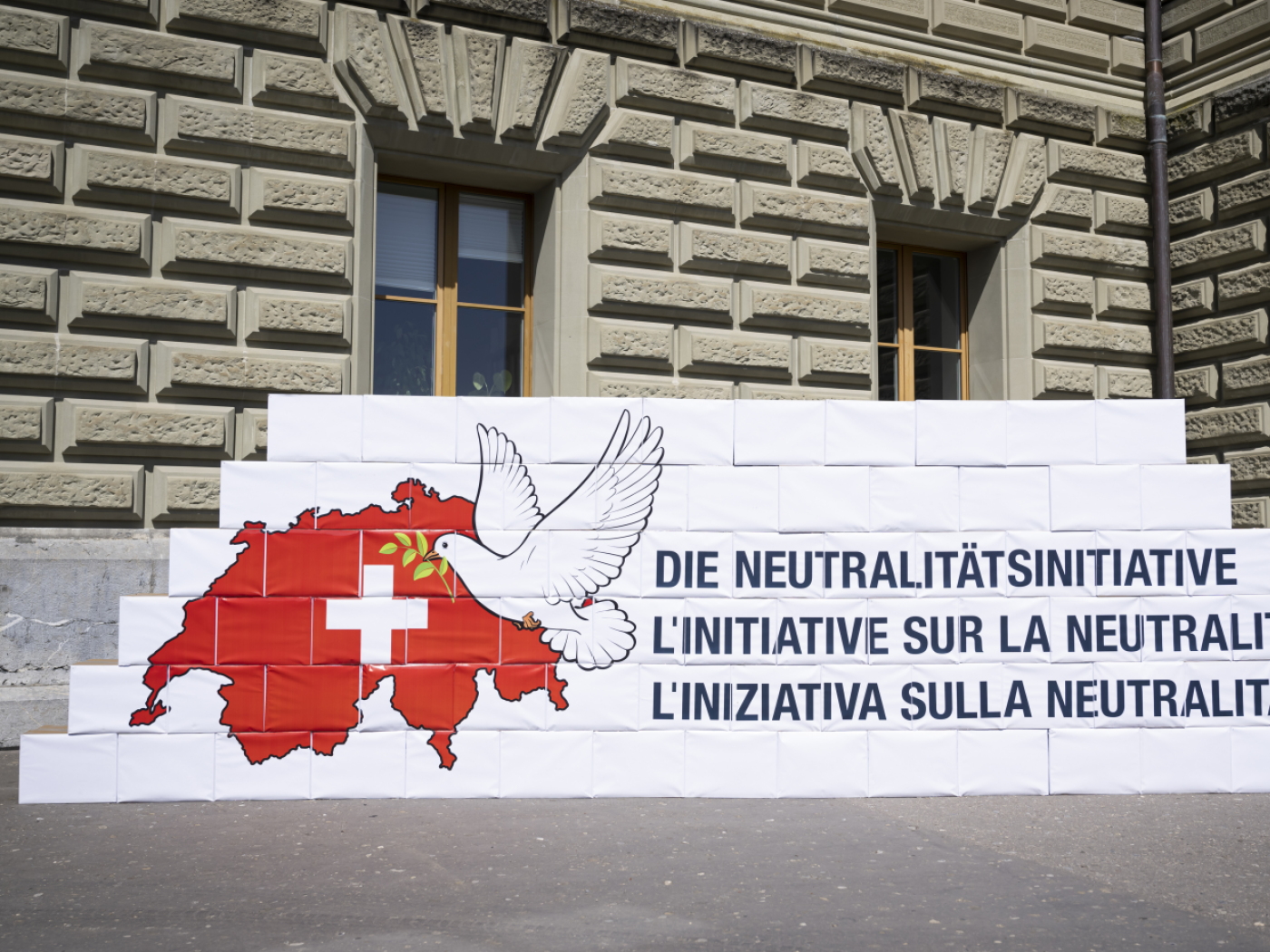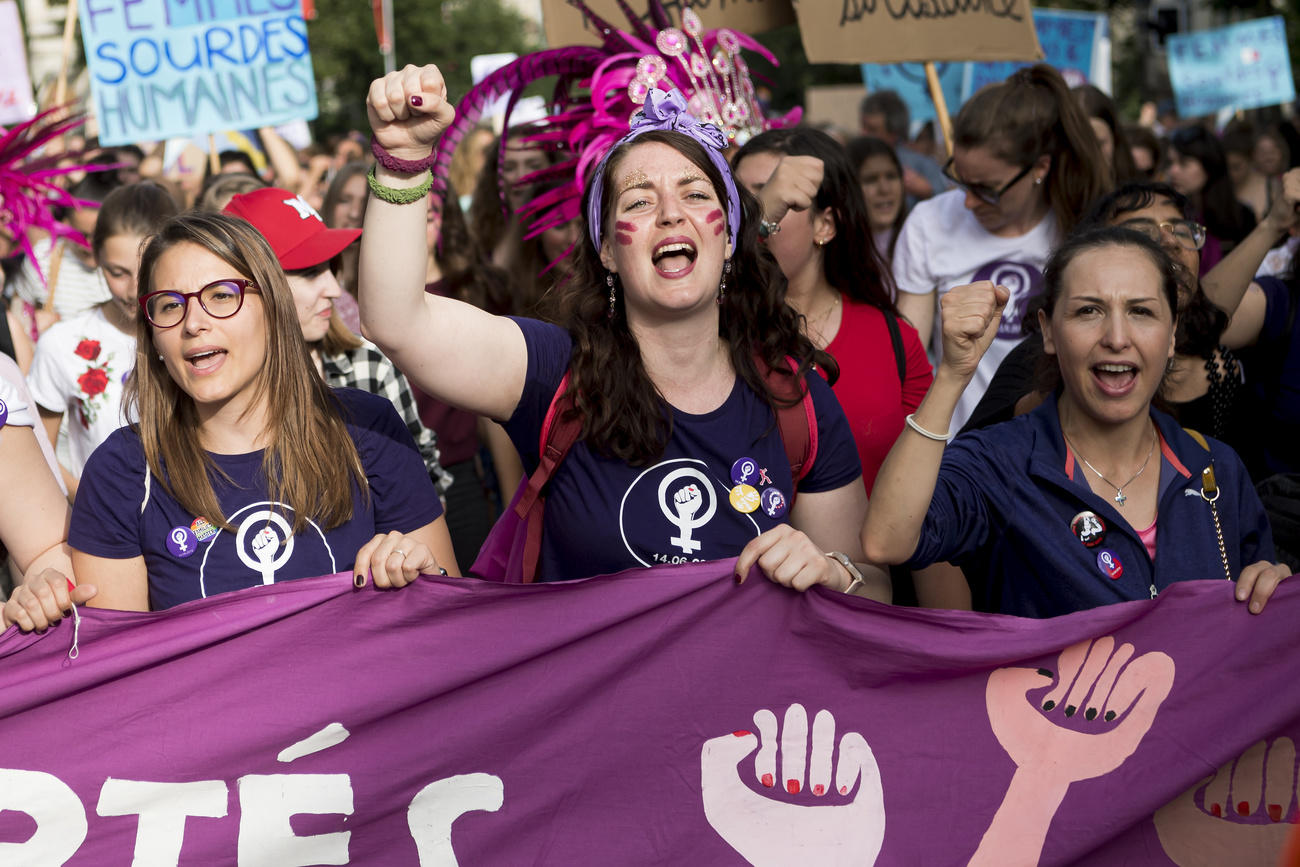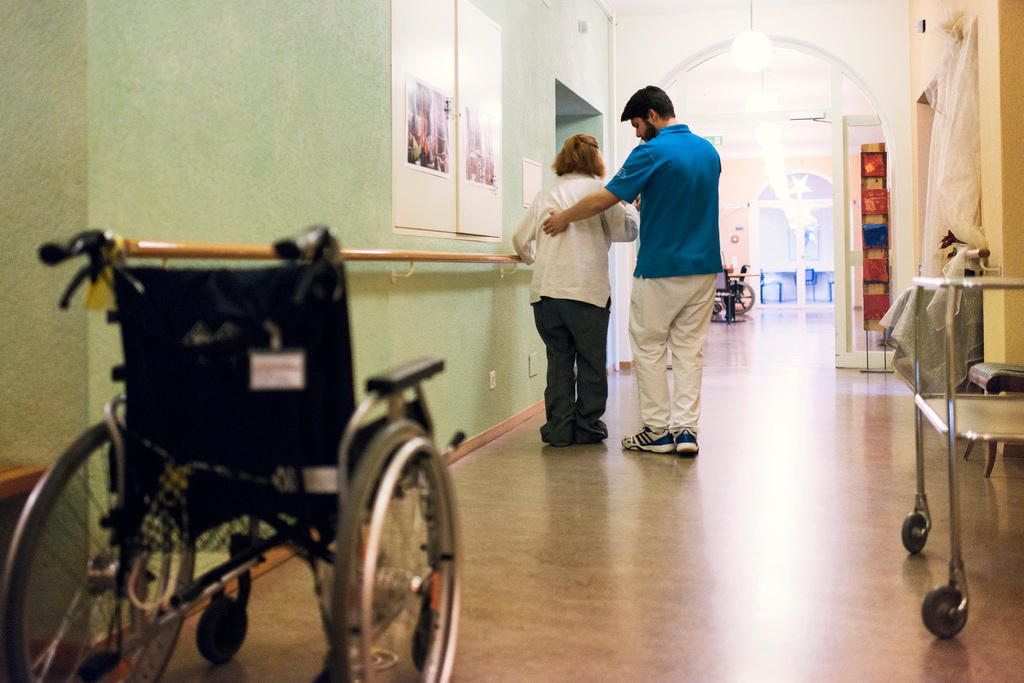
Did the 2019 women’s strikes give Swiss care workers a boost?
A massive women's strike took place across Switzerland one year ago. As a gender and diversity expert, I wanted to revisit the core demands of these demonstrations and measure our progress. Are we any closer to achieving equality and valuing our care workers?
In 2020 Switzerland, along with the global community, had to cope with the coronavirus pandemic. We are all navigating unprecedented experiences. Some of the questions raised by this crisis are new and shook the pillars of our social lives. Others are long-running issues that have been brought into sharper focus by these cataclysmic events.
Back in the summer of 2019, a central demand of the women’s strike was that paid and unpaid care work should be much more highly valued.
Last June 14, it was argued, as often before, that this appreciation should be reflected in higher salaries and better working conditions in the care sector. The pandemic has highlighted once again the importance of the nursing and extended care professions. Many Swiss people showed their gratitude for these “front line” responders by standing on their balconies and clapping their hands in unison. However, for most people working in the care sector, conditions have deteriorated rather than improved in this time of upheaval.
Crisis management meant the extension of working hours in this sector. Personnel shortages were generally offset by placing a greater burden on individuals. And all this took place without raising salaries or offering bonuses in appreciation for all the overtime. In contrast, Switzerland has offered robust support for other sectors experiencing duress: aviation being a prime example.

More
Huge turnout for women’s strike in Switzerland
Looking at these socio-political dynamics from a gender perspective, it becomes clear that there has been no improvement in predominantly female occupations such as nursing, childcare and retail. Swiss politicians and society are not (yet) prepared to upgrade paid care work, nor to take compensatory measures through redistribution. These were key demands of last year’s strikes.
There are voices that continue to make these demands very clearly. For example, an initiative of the Swiss think tank Denknetz, External linkwith the participation of former Federal Councillor Ruth Dreifuss, is pushing for a a new social contract. It calls for recognising care work as indispensable for a functioning economy, for a more gender-equitable society and for the sustainable use of natural resources. A core element is the material recognition of care work, which can be made possible through a redistribution of resources.
Nevertheless, Swiss President Simonetta Sommaruga recently spoke out in favour of a discussion on higher wages in so-called systemically important sectors. She called for greater support for employees in care, day-care centers and the retail trade. Sommaruga believes this duty falls on employers, including when the employer is the public sector. In an open letter to parliament, the professional association of nursing professionals demanded higher wages, better working conditions and a strengthening of training. Among other things, they argued in favour of a Covid 19 allowance, as is the case in Germany. Although thesedemands are currently being discussed, they have so far not been implemented or have been implemented inadequately.

More
Swiss women demand measures for childcare, essential workers
And what about the demonstrations in the times of coronavirus? If we compare the strike activities of last June and the demonstrations against the restrictive coronavirus measures in April and May 2020, we find some parallels and many differences. One parallel is the longing for a unified community and overcoming separation. The big difference is that coronavirus demonstrators mainly worried their individual demands were not being heard. There was no display of solidarity with a community or group – for example, a shared concern that care work must be upgraded structurally, institutionally and monetarily. Instead, we witness a seemingly desperate demand not to be neglected as an individual.
I am fully aware that during such trying times individuals might be inclined to worry about themselves first. The coronavirus health crisis exposed the full extent of our human vulnerability. But it is imperative that we stand solidarity with those who are most at risk. To claim individual rights at the cost of the most vulnerable is frightening and totally incompatible with the objectives of the women’s strike from June 2019.
We, as a society, should take stock of our responsibilities amid this “new normality”. We have a responsibility to care workers and to particularly vulnerable groups. Care work is indispensable to all of us. So it is on us to ensure care workers finally receive the recognition and renumeration they deserve.

In compliance with the JTI standards
More: SWI swissinfo.ch certified by the Journalism Trust Initiative






































You can find an overview of ongoing debates with our journalists here . Please join us!
If you want to start a conversation about a topic raised in this article or want to report factual errors, email us at english@swissinfo.ch.